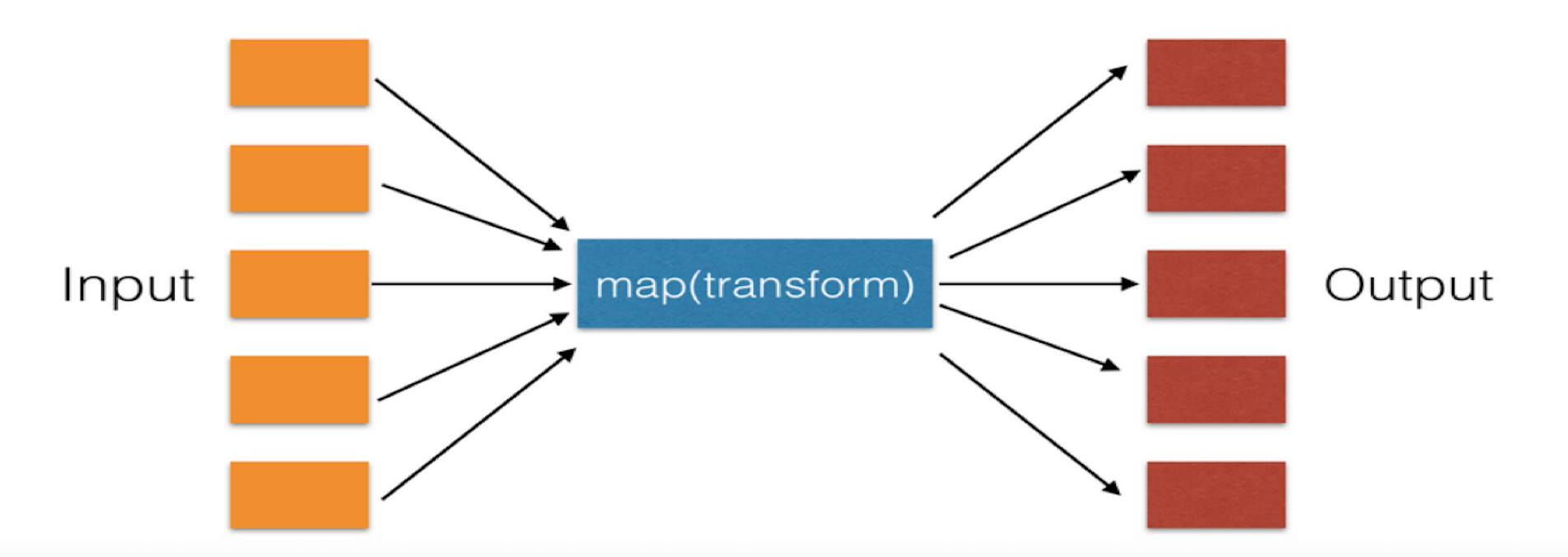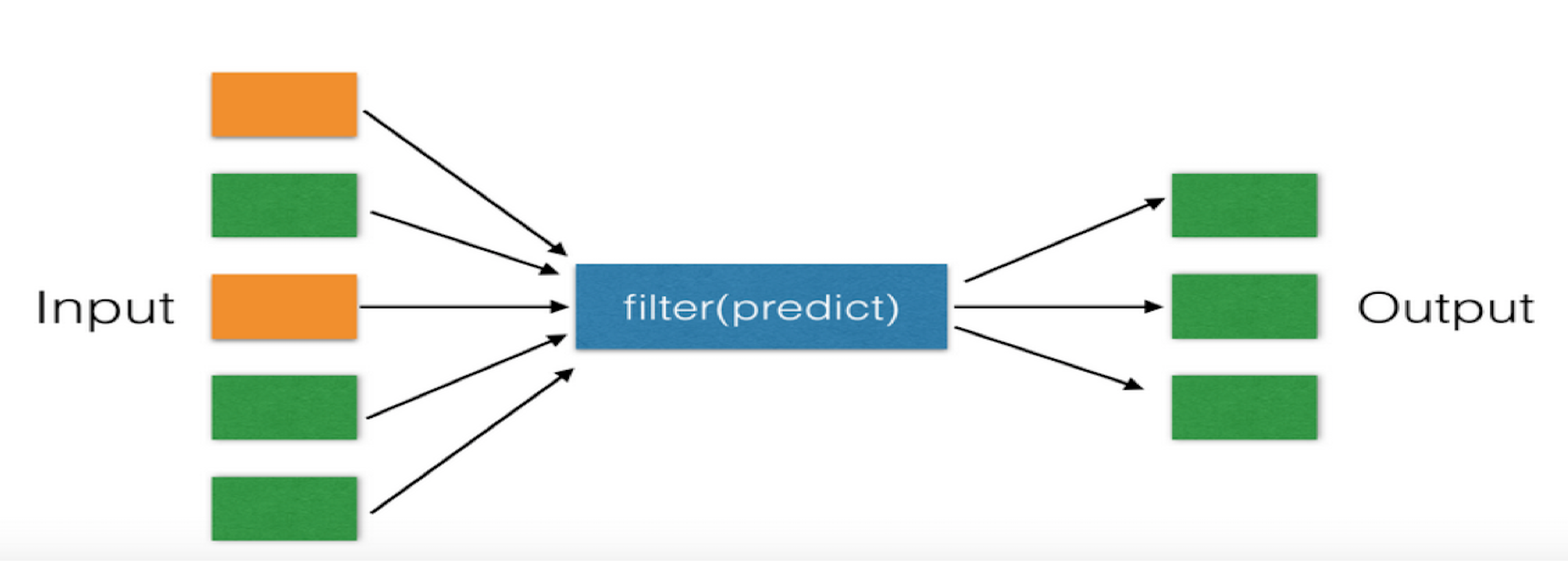一、map

class map(object): """ map(func, *iterables) --> map object Make an iterator that computes the function using arguments from each of the iterables. Stops when the shortest iterable is exhausted. """ def __getattribute__(self, *args, **kwargs): # real signature unknown """ Return getattr(self, name). """ pass def __init__(self, func, *iterables): # real signature unknown; restored from __doc__ pass def __iter__(self, *args, **kwargs): # real signature unknown """ Implement iter(self). """ pass @staticmethod # known case of __new__ def __new__(*args, **kwargs): # real signature unknown """ Create and return a new object. See help(type) for accurate signature. """ pass def __next__(self, *args, **kwargs): # real signature unknown """ Implement next(self). """ pass def __reduce__(self, *args, **kwargs): # real signature unknown """ Return state information for pickling. """ pass
map(func, *iterables) --> map object
Make an iterator that computes the function using arguments from
each of the iterables. Stops when the shortest iterable is exhausted.
"""
使用从参数来计算函数的迭代器每个迭代项。在最短的迭代结束时停止。
遍历序列,对序列中每个元素进行操作,最终获取新的序列。

给li = [1,2,3,4]每个元素加100
#!/usr/bin/python3 li = [1,2,3,4] newList = map(lambda x:x+100, li) print(newList) print(list(newList))
执行结果:
<map object at 0x00000000027C4C88> [101, 102, 103, 104]
参数传入自定义函数:
#!/usr/bin/python3
li = [1,2,3,4]
def myAdd (x):
return x * 100
newList = map(myAdd, li)
print(newList)
print(list(newList))
执行结果:
<map object at 0x00000000022249B0> [100, 200, 300, 400]
二、filter

class filter(object): """ filter(function or None, iterable) --> filter object Return an iterator yielding those items of iterable for which function(item) is true. If function is None, return the items that are true. """ def __getattribute__(self, *args, **kwargs): # real signature unknown """ Return getattr(self, name). """ pass def __init__(self, function_or_None, iterable): # real signature unknown; restored from __doc__ pass def __iter__(self, *args, **kwargs): # real signature unknown """ Implement iter(self). """ pass @staticmethod # known case of __new__ def __new__(*args, **kwargs): # real signature unknown """ Create and return a new object. See help(type) for accurate signature. """ pass def __next__(self, *args, **kwargs): # real signature unknown """ Implement next(self). """ pass def __reduce__(self, *args, **kwargs): # real signature unknown """ Return state information for pickling. """ pass
filter(function or None, iterable) --> filter object
Return an iterator yielding those items of iterable for which function(item)
is true. If function is None, return the items that are true.
"""
返回一个迭代器,该迭代器可以为该函数(项)进行迭代是真的。如果函数是None,返回true的项。
对于序列中的元素进行筛选,最终获取符合条件的序列
#filter第一个参数为空,将获取原来序列

#!/usr/bin/python3
li = [1,2,3,4,5,6,7,8,9,10]
def myAdd (x):
return x % 2 == 0
newList = filter(myAdd, li)
print(newList)
print(list(newList))
print("---------------")
newList = filter(lambda x: x % 2 , li)
print(newList)
print(list(newList))
print("---------------")
#filter第一个参数为空,将获取原来序列
newList = filter(None, li)
print(newList)
print(list(newList))
执行结果:
<filter object at 0x0000000002824EB8> [2, 4, 6, 8, 10] --------------- <filter object at 0x000000000282B320> [1, 3, 5, 7, 9] --------------- <filter object at 0x0000000002824EB8> [1, 2, 3, 4, 5, 6, 7, 8, 9, 10]
